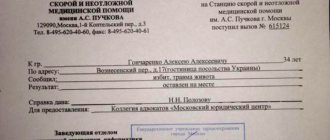Home / Complaints, courts, consumer rights / Consumer rights
Back
Published: December 16, 2019
Reading time: 4 min
0
438
Be carefull! New Year holidays are approaching. This means that most of the population of our country will celebrate holidays, including purchasing sparkling and not very sparkling alcoholic drinks in stores and catering establishments. In recent years, cases of counterfeit alcohol products have become more frequent, so you should pay special attention to the points of sale of alcohol and their legality.
- What is illegal trade in alcohol
- Complaint to Rospotrebnadzor
- Complaint to the police
- Responsibility for violations Administrative
- Criminal
The fact is that, according to current legislation, not all entrepreneurs have the right to sell alcohol, but only those who have the appropriate license.
Responsibility for selling alcohol without a tax stamp
An excise stamp is a special label affixed to a bottle of alcohol. It confirms the quality and authenticity of the product, the legality of its sale, as well as the fact of payment of the mandatory tax. Only a registered manufacturer or importer of alcoholic beverages can receive excise tax. The brand contains basic information about the product and has several degrees of protection.
Excise stamp
Unscrupulous entrepreneurs, trying to reduce costs, purchase cheap, low-quality raw materials, and then counterfeit excise stamps or try to sell alcohol without them. The illegal sale of alcohol in this case is regulated by Article 15.12 of the Code of Administrative Offenses of the Russian Federation (Part 4) and entails sanctions in the form of a monetary penalty:
- for citizens – from 4,000 to 5,000 rubles;
- for officials and individual entrepreneurs – from 10,000 to 15,000 rubles;
- for organizations - from 200,000 to 300,000 rubles.
Attention! In addition to the fine for selling alcohol without excise stamps, the article provides for confiscation of the subject of the offense, that is, the entire batch of alcohol.
Responsibility for storage of unlicensed alcoholic beverages
The production and turnover of alcohol-containing products is regulated by Federal Law 171-FZ of November 22, 1995. According to current legislation, not only the production, purchase or sale of illegal alcohol is prohibited, but also its storage and transportation. All of the listed actions performed in relation to alcohol-containing products fall under Article 171.1 of the Criminal Code of the Russian Federation. Part 5 of the article defines the following punishment for violators:
- fine – up to 500,000 rubles or an amount equal to the offender’s income for a period of up to 2 years;
- correctional labor (up to 3 years);
- imprisonment for a term of up to 3 years with a monetary penalty (or a fixed penalty - in the amount of up to 120,000 rubles or in the amount of income for a period of up to six months).
According to Part 6 of the same article, if the storage of an unlicensed product was planned in advance and organized by a group of persons, as well as in the case where the cost of unlabeled alcohol-containing products is estimated at more than 100,000 rubles, the convicted person will be punished:
- monetary penalty – from 400,000 to 800,000 rubles (or income for a period of 1 to 3 years);
- correctional labor (up to 5 years);
- imprisonment for up to 6 years (in this case, an additional fine of up to 1 million rubles or income for a period of up to 5 years may be imposed).
Regulatory regulation of the sale of alcoholic products
At the end of 2021, V.V. Putin approved a legislative provision tightening liability for the illegal sale of alcoholic beverages. Thus, the Criminal Code of Russia has been supplemented with new articles on illegal entrepreneurship, sales and production of alcohol.
Article of the Administrative Code
Not in all situations, the store and the official will be prosecuted for the illegal sale of alcohol in accordance with the articles of the Criminal Code of Russia. So, in Art. No. 14.17.1 of the Code of Administrative Offenses states that if a citizen is not an individual entrepreneur or LLC, but is engaged in the sale of alcohol-containing products and this fact is confirmed for the first time, then the act should not be regarded as a criminal violation. In this case, the punishment will be applied within the framework of the Russian Criminal Code.
In the context of the offense, a number of sanctions are provided:
- payment of a fine in the amount of 30,000-500,000 rubles. with complete withdrawal of products;
- an increased penalty threatens a farmer or individual entrepreneur running a peasant farm.
Criminal Code of the Russian Federation
The Criminal Code regulates liability for violation of Art. No. 171.3 – illegal production and trade of alcoholic beverages in large quantities.
In this case, we mean an amount over 100,000 rubles, but less than a million:
- sanctions 2-3 million rubles;
- community service for a period of up to 36 months;
- imprisonment for up to three years.
As an additional measure, the judicial authority has the right to deprive the owner of a bar or store, as well as an employee, from holding a certain position or conducting activities. In a situation where there was a group conspiracy, within the framework of which large quantities of alcohol worth more than a million rubles were sold on the territory of a retail outlet, the punishment will be severe.
Watch the video: “Illegal sale of alcoholic beverages.” Responsibility:
- imposition of a fine in the amount of 3-4 million rubles;
- forced labor for a period of up to 60 months;
- detention and imprisonment for up to five years.
In addition, the definition of “illegal sale of alcohol” appears in Article No. 171.4, for violation of which penalties are provided for the individual sale of alcohol. However, this rule is relevant if the guilty person has previously received warnings in the form of administrative punishment.
The following category of population falls under the article for illegal sale of alcohol:
- individuals operating in the retail trade sector;
- entrepreneurs without the formation of an individual entrepreneur or LLC.
The following products do not fall under criminal offenses as part of the illegal sale of alcohol:
- cider;
- mead;
- beer.
Advertising of online platforms involved in the sale of alcohol in the media is prohibited. Any stores offering products to Internet users are blocked even before the trial begins.
The main factor in “closing” an account or website is the lack of certification, since the seller often does not pay excise taxes and VAT.
Sale of alcoholic beverages at night
The sale of alcohol at night is regulated at the state level. According to Part 9 of 171-FZ, retail sale of alcohol at night (from 23.00 to 08.00) is prohibited. In addition, the law allows for the introduction of additional restrictions at the regional level, which some constituent entities of the Russian Federation have already taken advantage of, increasing the duration of the time period during which it is forbidden to sell alcohol.
Night sale
The exception is duty-free shops, as well as organizations that offer catering services to consumers and have a license to sell alcoholic beverages (pubs, bars, cafes, restaurants).
According to Part 3 of Art. 14.16 of the Administrative Code, failure to comply with legal requirements regarding compliance with the time frame for selling alcohol is punishable by fines. The amount varies from 20-40 thousand rubles for officials to 100-300 thousand rubles for legal entities. Also, all alcohol-containing products found in the violator’s possession may be confiscated.
Some sellers try to circumvent the law on the sale of alcohol, for example, by selling alcohol as souvenirs or selling it at night via the Internet, trying to play on the time difference if the seller and buyer are in different time zones.
However, such tricks nevertheless do not allow one to circumvent the ban on the sale of strong drinks at prohibited times, and in judicial practice they are regarded as a malicious violation. The result may be a fine for the site owner and seller for violating the night-time sales ban, as well as a fine for not having a license or violating advertising laws.
Alcohol is sold around the clock
A complete ban on the sale of alcohol from 21.00 to 11.00 in the Moscow region has been in effect for several years. However, many traders sell alcohol at night, violating government regulations. Our correspondent looked into what motivates such entrepreneurs and how widespread this practice is.
Complaints about the sale of alcohol at night come from almost every district of the Moscow region. The correspondent of our newspaper, having selected several of these complaints, checked whether alcohol is really sold around the clock almost everywhere. The result was depressing: almost all complaints have real grounds.
Some of these outlets, as it turned out, do not have the right to sell alcoholic products at all, so even during daylight hours they conduct business “under the counter.” Somewhere they sell alcohol “quietly”, and somewhere around a store or stall a huge crowd of lovers of strong drinks gathers and drinks them on the spot.
— I know that the “Products” store, located almost in the city center, sells alcoholic beverages at night. This store is open 24 hours a day, and any alcohol can be purchased there at any time of the day or night. Customers of this store drink alcohol right outside the store and near the nearby monument,” said Nikita Shabalin, a resident of Lyubertsy.
Indeed, in the park near this outlet you can immediately notice several noisy companies. Moreover, at night they don’t even think about going home. Why is it not difficult to guess.
______________________________________________________________________________________
It's easier to pay
______________________________________________________________________________________
As the press service of the Lyubertsy city district administration said, joint raids with law enforcement agencies to suppress the sale of alcohol at night take place regularly.
In addition, several times a year, employees of the Moscow Region Department and territorial departments of economic security and anti-corruption carry out operational and preventive measures “Alcohol” aimed at suppressing the illegal trafficking of alcoholic beverages throughout the Moscow region. As part of the operation, inspections are carried out not only of small retail outlets, but also of organizations engaged in wholesale trade, and even manufacturers.
But those who want to make money by breaking the law still continue to fill their pockets with cash around the clock. Perhaps the whole point is that enterprising businessmen are not afraid of the punishment for such a crime.
According to the law, this offense is subject to administrative liability in the form of a fine: for legal entities - in the amount of 30 to 40 thousand rubles with or without confiscation of alcoholic beverages, for individual entrepreneurs - in the amount of 3 to 4 thousand rubles with or without confiscation of drinks , for officials a fine of 3 to 4 thousand rubles,” reported the press service of the Main Directorate of the Ministry of Internal Affairs of Russia for the Moscow Region.
As you can see, it is easier and more profitable to pay than to give up the constant income that alcoholic products sold at odd hours regularly provides.
______________________________________________________________________________________
Without a license
______________________________________________________________________________________
But even in the daytime, not all shops conduct trade legally. In order to legally sell alcohol, an organization must obtain a retail license. It serves as confirmation that the store meets all necessary requirements.
Currently, in the Moscow region, more than 7,100 companies that have been issued a license to carry out this activity are engaged in commercial activities in the retail trade of strong alcoholic beverages. But many of those who do not want to collect a large package of documents, pay for a permit, or simply cannot, for some reason, obtain a license legally, still sell alcohol. In such cases, the bottles are simply not put on display. Alcohol is stored in back rooms, and satisfied customers leave the outlet carrying it in opaque bags.
— In a small brick store at the intersection, alcohol is sold around the clock. When selling, the seller goes to a separate room, puts all the ordered alcohol in a black bag and gives it to the buyer. In this case, of course, no checks are issued. The fame of this place spreads throughout the city, and in the evening hours entire queues accumulate here,” complains Alexander Maksimov from Zhukovsky.
______________________________________________________________________________________
Just the facts
______________________________________________________________________________________
As the head of the city district, Andrei Voytyuk, said, over 8 months of this year, police officers in Zhukovsky drew up 50 reports on such violations. For example, on September 10 of this year, during a scheduled inspection, five cases of illegal sale of alcohol were revealed in various places in the city. Currently, legal proceedings are underway regarding these facts.
If we talk about the Moscow region as a whole, as a result of operational search activities, over the eight months of 2014, 154 facts of selling alcoholic beverages without a license were identified, while in 2013 257 similar cases were identified.
Representatives of law enforcement agencies especially emphasize that residents of the Moscow region themselves provide active assistance to the Department of Economic Security and Anti-Corruption of the Main Directorate of the Ministry of Internal Affairs of Russia for the Moscow Region in identifying violations of the rules for the sale of alcoholic beverages. All incoming complaints from the population are processed by operational employees and, if the information is confirmed, this illegal activity is stopped.
Let us remind you that for the sale of alcohol without a license, in accordance with Part 3 of Article 14.17 of the Code of Administrative Offenses of the Russian Federation, legal entities are liable in the form of a fine in the amount of 200 to 300 thousand rubles. In addition, if activity is detected without special permission, all alcohol may be confiscated.
Ban on the sale of alcohol on holidays
Many areas have introduced restrictions on the sale of alcohol on certain days. Subjects of the Russian Federation have the right to independently take restrictive measures to more effectively combat the spread of alcohol addiction. Depending on the region, the ban applies to the sale of alcohol:
- September 1st;
- on Children's Day;
- on Family Day;
- on Youth Day;
And the Perm Territory went even further and banned the sale of alcohol on International Women’s Day, Border Guard Day, Airborne Forces Day and even Victory Day.
The sale of alcohol is limited on the day of the last bell, as well as on those days when graduates celebrate graduation.
The sale of alcohol on a prohibited day is regulated by Article 14.2 of the Code of Administrative Offenses of the Russian Federation and threatens the violator with a monetary penalty:
- for citizens – from 1,500 to 2,000 rubles;
- for officials – from 3,000 to 4,000 rubles;
- for legal entities – from 30,000 to 40,000 rubles.
Most often, financial losses are supplemented by the seizure of alcohol.
Complaint to the police
Since the illegal sale of alcohol is punishable by law by the state, such violations can also be reported to the police. A complaint to the police is drawn up on the same principle as Rospotrebnadzor, but there are some differences:
- the paper must be addressed to the head of the department;
- You must have a passport with you;
- in describing the problem you can and even need to refer to legislation;
- witness statements can be attached;
- other requirements for the addressee : for example, to conduct an investigation and bring the perpetrators to justice.
Sale of alcohol in public places
The sale of alcohol in public places is also regulated by 171-FZ. Clause 2 of Article 16 lists objects and territories where the sale of alcohol is prohibited.
Sale prohibited
These include:
- premises and territories of educational institutions;
- premises and territories of medical institutions;
- organizations operating in the field of culture;
- all types of public transport and adjacent infrastructure (train stations, metro stations, bus stops, platforms);
- gas stations;
- military facilities and territories;
- markets and non-stationary retail facilities;
- stadiums;
- places located near sources of increased danger.
In addition, in the process of coordinating public events (rallies, meetings, demonstrations), the authorities may prohibit the sale of alcohol where large crowds of people are expected and in adjacent areas.
Administrative penalties for selling alcohol in unauthorized places:
- for officials – from 20,000 to 40,000;
- for legal entities – from 100,000 to 300,000 rubles.
Punishment for selling homemade alcohol
The sale of home-produced strong drinks is quite common in some regions of Russia. The sale of alcoholic beverages by citizens is illegal.
The exception is when an individual is officially in an employment relationship with an organization that has a license to sell alcohol. Otherwise, the act acquires the status of an administrative offense, and the punishment is determined in accordance with Article 14.17.1 of the Code of Administrative Offenses of the Russian Federation and amounts to:
- for a private owner - 30-50 thousand rubles;
- for individual entrepreneurs – 100-200 thousand rubles.
If the violation is committed repeatedly, criminal liability arises. In accordance with Article 171.4 of the Criminal Code of the Russian Federation, the violator expects:
- monetary penalty in the amount of 50-80 thousand rubles (or income for 3 – 6 months);
- forced labor (maximum one year).
A repeated violation is considered to be the repeated sale of alcohol committed within a year from the date of the first illegal sale.
Ways to sell alcohol without breaking laws
Often, at the beginning of their entrepreneurial journey, young businessmen are interested in what kind of alcohol can be sold without a license and how legal it is.
Sale of unlicensed alcohol
This category of drinks includes low-alcohol products (up to 4°), namely:
- cider;
- mead;
- malt;
- poire;
- cocktails.
Wine, like other products, does not belong to this group and requires a license.
Similar rules for the sale of alcohol apply to supermarkets and public catering. Despite the fact that the sale of malt drinks in 2021 does not impose an obligation on retail outlets to obtain a license, such activity is unacceptable without compliance with the requirements.
The place for street sales (open type) should not be located next to public buildings:
- kindergartens;
- schools;
- clinics and hospitals;
- sports objects;
- and others specified in the list.
The sale of alcohol without accompanying documentation is permitted only if the requirements are strictly observed, i.e. if the product line is represented by malt drinks. Trade in other alcohol without licensing entails the imposition of penalties and prosecution, including under Articles 171.3, 171.4 of the Criminal Code of Russia. In view of this, most entrepreneurs strive to draw up the relevant documents and enter into agreements with companies that provide assistance in obtaining them.
Where can I complain about the illegal sale of alcohol?
Having discovered the fact of illegal sale of alcohol, it is necessary to notify the regulatory authorities. These include:
- Rospotrebnadzor;
- police;
- prosecutor's office
Fine
The application must contain the following information:
- personal data of the applicant;
- a detailed description of what happened (it is advisable to support the details with references to current legislative norms);
- details of the organization where the violation occurred (name, address);
- personal data of the offender (if any);
- evidence of violation (for example, a receipt for alcohol with the time stamp, or a photo of alcohol being sold to a teenager).
Finally, it is necessary to indicate what actions the applicant expects from the supervisory authority (for example, conduct an inspection) and indicate contacts for feedback (email or postal address).
The most convenient way is to submit an application through the official website of the selected department.
Complaint to Rospotrebnadzor
Supervision of consumer rights is carried out on the territory of the Russian Federation by Rospotrebnadzor. Therefore, it makes sense to go there first.
You can file a complaint either by physically visiting the organization’s branch at your place of residence, or remotely on the Rospotrebnadzor website.
In any case, the complaint must contain information such as:
- name of the organization to which the complaint is being filed;
- Full name of the applicant, his address, contact details;
- the main part of the document indicates all the information about the entrepreneur against whom the complaint is being made : name, address, information about the violating employee, if necessary, and also describes the case of the identified violation;
- request to Rospotrebnadzor : conduct an inspection and oblige the violations to be eliminated;
- date, signature.
You can attach evidence to the document, if available: receipts, photos and videos, etc.










